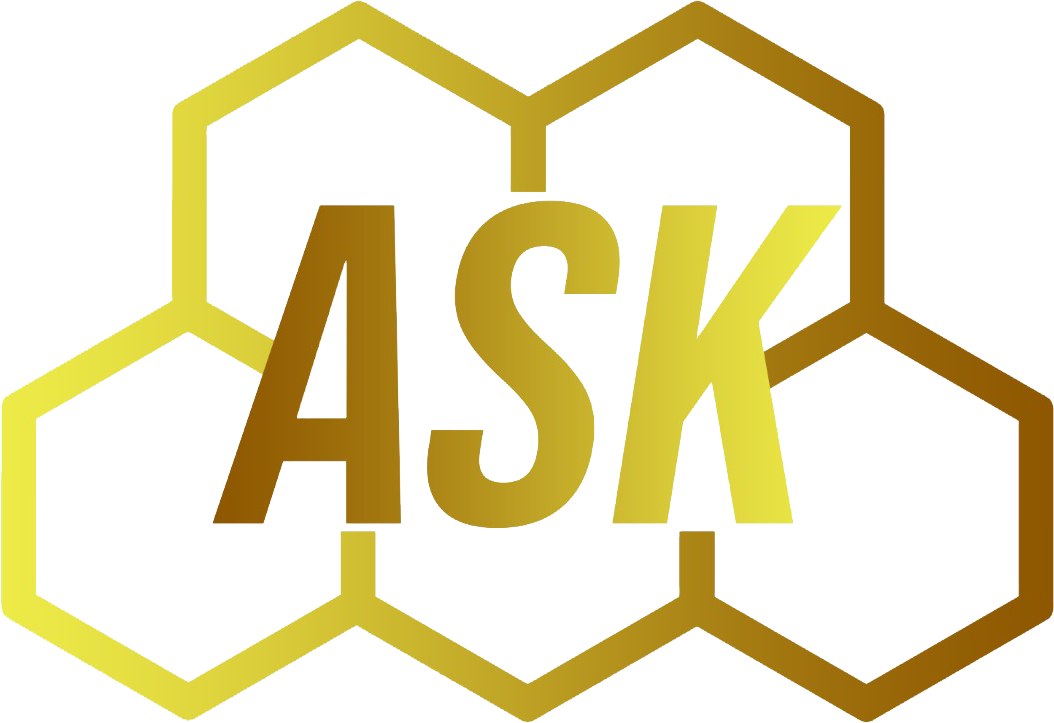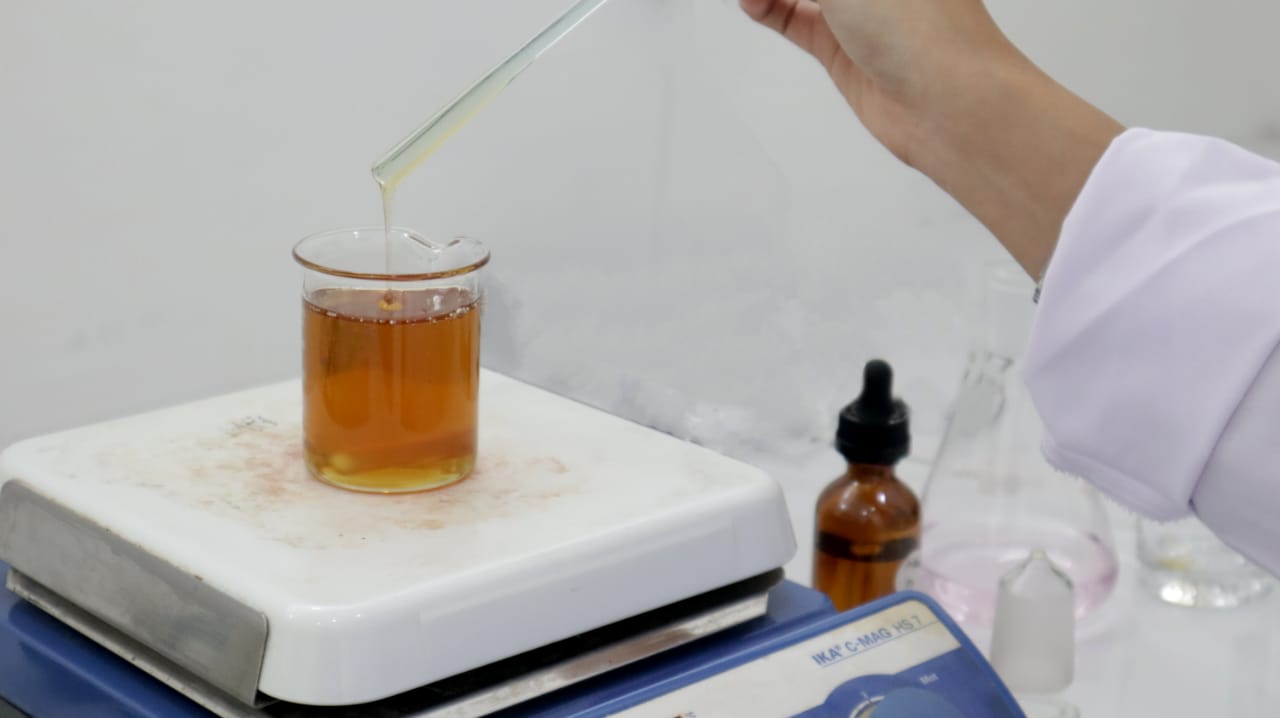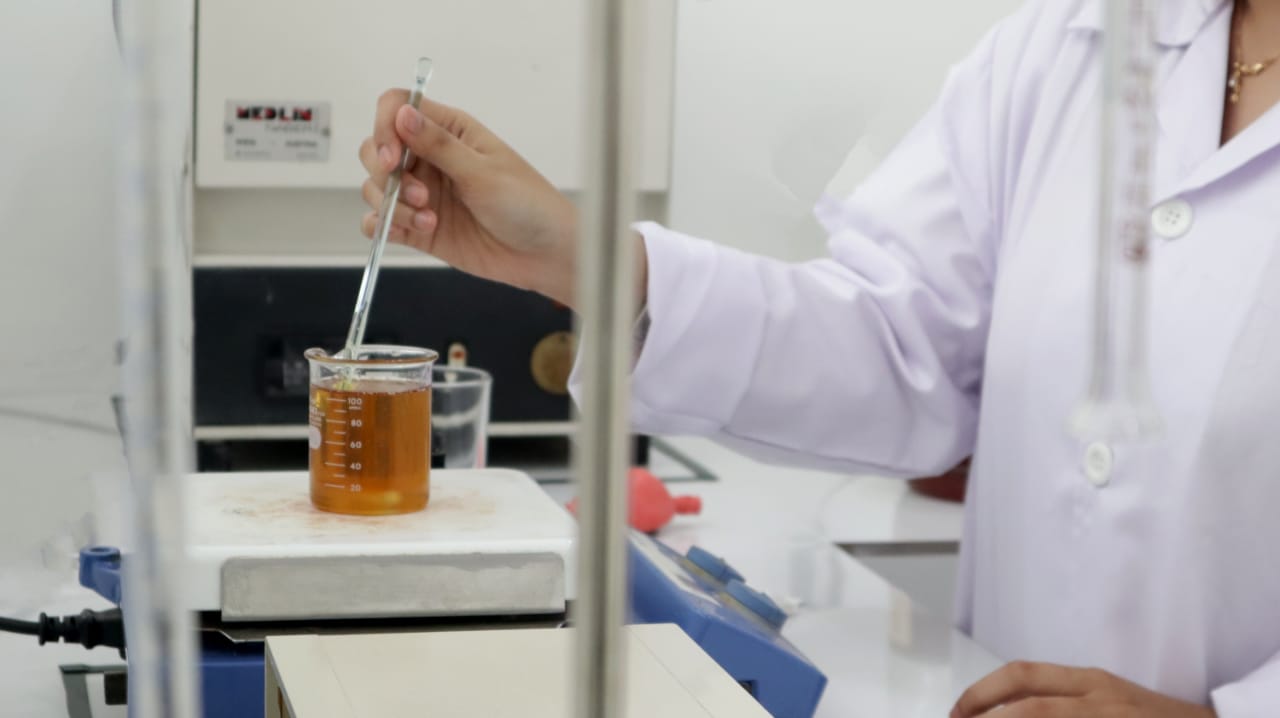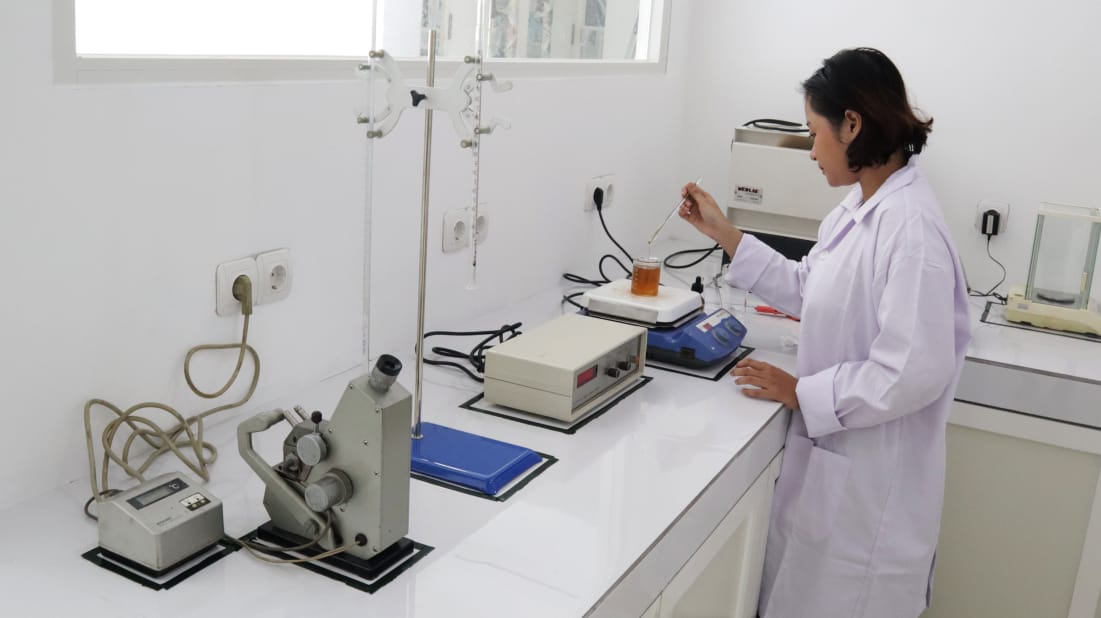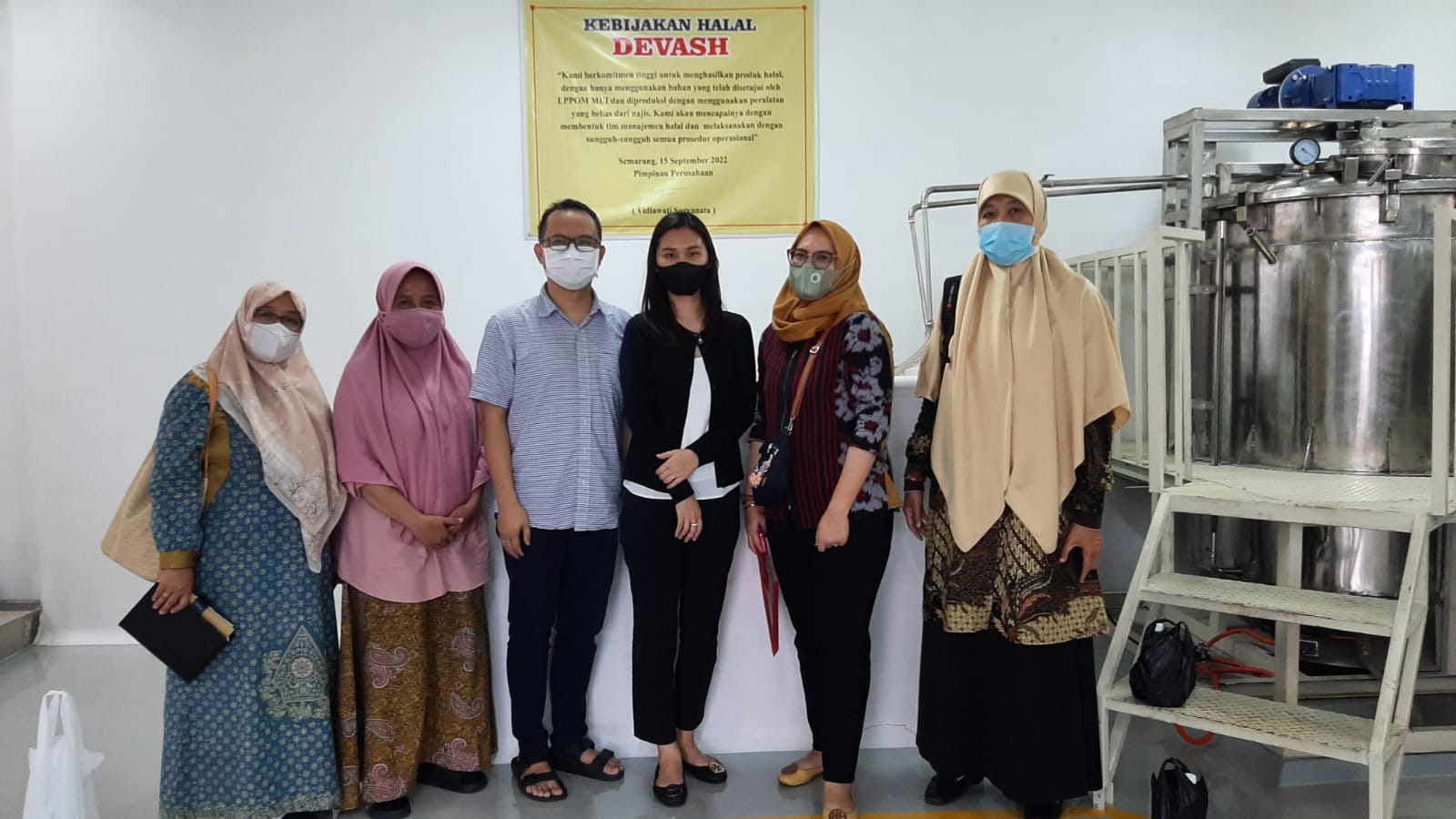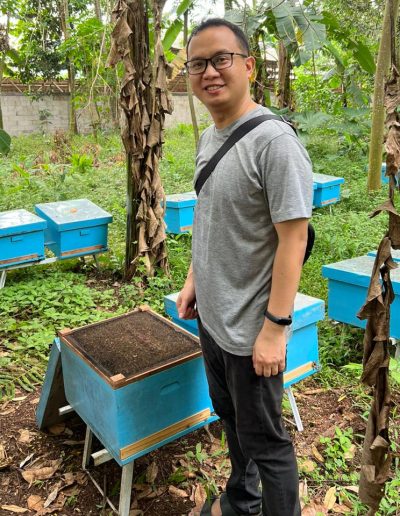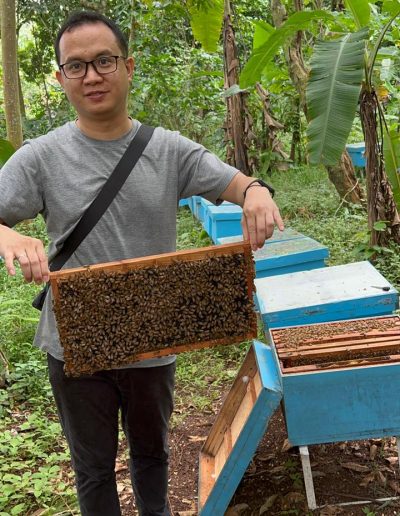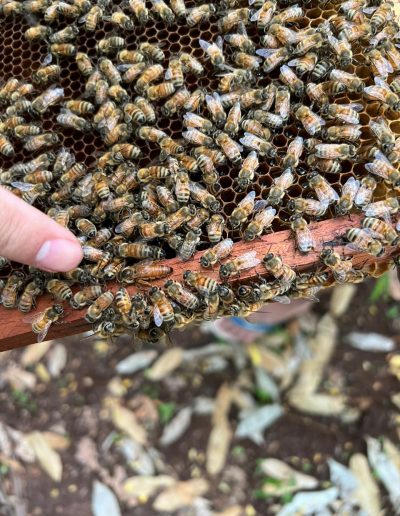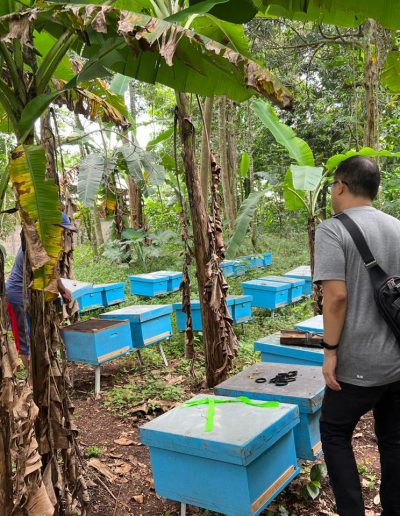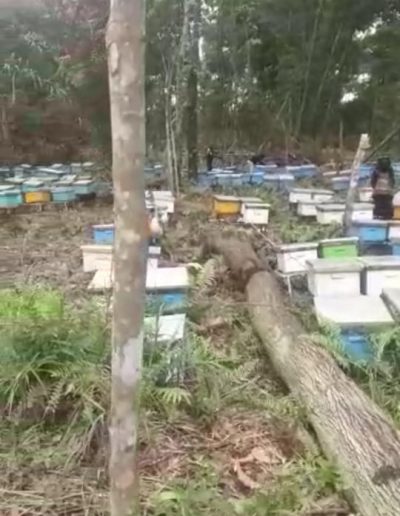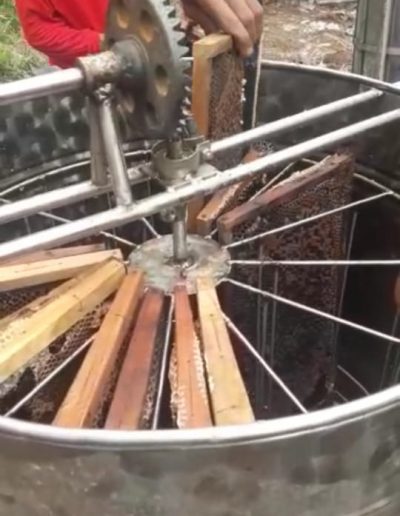We have launched a honey business in mid 2022.
This new endeavor has been very exciting and promising as we provide scalable, premium-grade, industrial standard honey for pharmaceutical, food & beverage industries, as well as hotels, restaurants and catering surrounding the city of Semarang. This is possible due to strategic partnership with local honey farmers, investment in a brand new processing facility and experienced research & development staff.
Our lab equipments and QC staff helps to ensure that we only supply premium-grade honey to users
Ensuring honey authenticity is one of the great challenges facing the honey industry today. Over the past half-century, a number of honey testing methods have been developed to detect food fraud. We believe the honey you love and consume every day should be wholesome and trustworthy. This is why we are committed to advancing stronger testing solutions to ensure the honey consumed every day is pure and authentic.

Halal certification is needed to inform Muslim consumers that products are prepared by halal methods. Through the halal assurance system, we can ensure that products comply with sharia law standards in terms of food hygene and qualities. Halal labeling legislation also protects the rights of consumers. Having a specific halal logo demarcates food products as permissible and impermissible.
